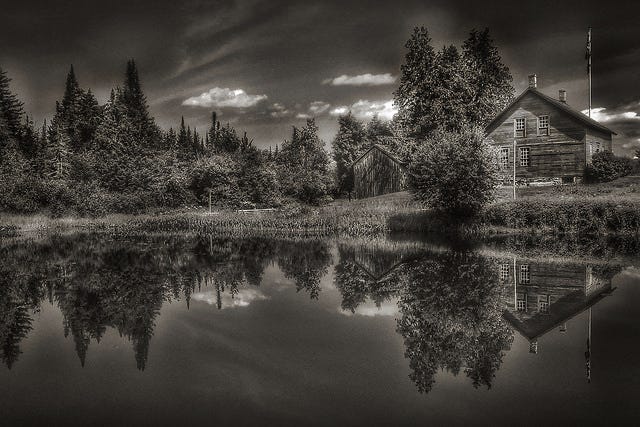
I enjoy the quiet moments with nature — the days when my perception is driven by my life experiences and an appreciation forged with this entity outside of humans. As someone who has an environmental graduate degree, I find myself harkening back to a time before the education and before I discovered the othering of my experiences. I long for a time when curiosity, connection and knowledge were not constrained by the supremacy of dominant westernized environmental views.
These days, I often feel on the outskirts, deemed as needing to be saved or needing to accept a way of thinking that has been outside of my life experiences. My blackness often initiates othering that feels like suffocation and erasure by White people’s natural experiences. Often, I am quizzed or have to over compensate beyond expectations of my knowledge or experiences in the natural world as a Black woman. It as if the narrative about the environment is already pre-owned — my experience seen as other and presumably less than. I find myself not only interacting with my natural landscapes but also sifting through the perceptions that saturate this land. And this process is exhausting. My experiences along with other people of color’s experiences highlight what I see as a key to environmental progress — the important work of decolonizing our environment.
Every time I hear someone say that they want to increase the access to the environment or educate communities of color about the environment, it makes me wonder if they truly understand this statement or what this truly entails. I wonder if they understand that access to our natural lands for people of color has never been about choice or due to a lack of education. Our history is rooted in colonization — colonization that meant ripping people of color from their natural lands. It is not necessarily about educating these communities. It is about access and the important work of those White folk that overwhelmingly make up the environmental field to unlearn the dominant narratives and acknowledge White supremacy.
The documentary, The African Americans Americans: Many Rivers to Cross, with Henry Louis Gates Jr. explores in detail the history of slavery in our country that sets the tone for many systems still in play. The documentary shows how nature was used as violence toward Black people and histories intentionally erased in the pursuit of capitalism built off of Black people in the plantation fields. For people of color, access to natural lands has always been interrupted by White Supremacy — the consequences of this beyond our control. Any conversations about inclusivity have to be viewed within the scope of the historical trauma embedded so heavily within our natural landscapes that transcends that one moment in time.
Around the world, no land is free from stories of pain and the forcible removal of people from their lands. With pressing issues like climate change, water pollution, and other environmental degradation, there is a growing awareness that diversity within the environmental movement is essential to solving these issues. Yet, often times, steps toward this type of inclusion is done in a way that negates the history of colonization that still shapes communities of color’s relationships with the land, where supremacy and barriers still exist. Without this historical lens, communities are approached with a savior complex that negates the knowledge and history of these communities. Acting as saviors when approaching communities is not any different than the ideas behind colonization, and it only perpetuates historical tropes.
Those of us with environmental degrees or formal knowledge are no more superior because we know proper names of the flora and fauna. My education does not afford me righteousness to those less formally educated, nor does White privilege. I am too doing the work of decolonizing the environment. It is a mission that many Black families like my own have been doing for generations. It is my job to build upon the work of my ancestors, enslaved and ripped from their lands. It is my job to continue access my parents worked hard to give me a generation before. It is the job of those in the environmental movement to join in on this important work of decolonization to break down barriers preventing communities of color from thriving in the environment.

